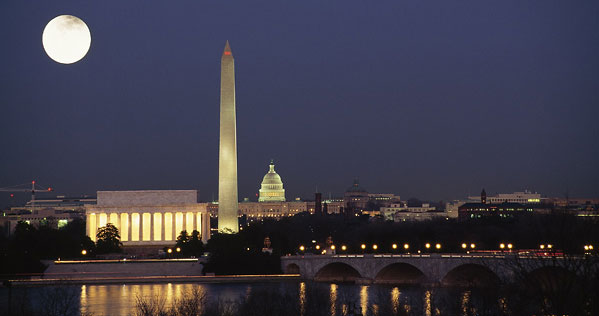The Washington Virus: Partisanship
The other day, a friend who I haven’t talked to in a while asked if I am still active in politics. The answer—no—came easily, but the reason necessitated some introspection. Why, after spending four years in college and two years afterward immersed in the field—professionally and personally—have I soured on the subject?
Obviously, that I’ve changed professions accounts for a lot. Yet I think my disenchancement runs deeper. Here’s why.
1. Hyperbole is more common than thoughtfulness.
I first commented on this trend in 2007, when I questioned three things: (1) the historically ignorant use of the words “totalitarian” and “authoritarian,” (2) the title of a new blog, TechRepublican, as opposed to TechConservative, and (3) Ronald Reagan’s 11th Commandant.
A year later, I lamented that, literally and figuratively, the pugilistic partisan, Grover Norquist, had replaced the courteous intellectual, William F. Buckley.
Finally, on a ListServ of prominent conservative bloggers to which I belong, few seem to mind when the e-mailer calls a politician with whom he disagrees a “douchebag” or “scumbag.” Never mind that the issue is usually trivial, or that the pol is usually a Republican; the rancor toward one’s own party is palpable.
As one who prides himself on no straw men, I find such discourse repugnant.
2. Winning has become more important than doing what’s right.
In his new book, The Clinton Tapes, Taylor Branch illustrates this point:
[President Clinton] treated posturing as a natural element. He remarked, for instance, that he had no idea what Senate Republican leader Bob Dole of Kansas thought about the merits of gays in the military. “He may genuinely be for it or against it,” said Clinton. “All our discussions have been about the politics.” He said Dole advised him quite candidly that he intended to keep the issue alive as long as he could to trap Clinton on weak ground, where he would “take a pretty good beating.” Similarly, the president said Dole consistently advised that budgets were the most partisan matters between Congress and the White House, and that Clinton could expect to get few if any Republican votes for his omnibus bill on taxes and spending. Clinton said Dole spoke of the opposition’s job not as making deals but rather making the president fail, so he could be replaced as quickly as possible.
Indeed, as a recent article in the New York Times suggests, the advocacy group, Americans for Limited Government, seems more interested in thwarting Obama than thwarting big government. The subtitle of the blog of the libertarian scholar, David Boaz, “Independent thinking in a red-blue town,” makes more sense to me every day I’m here.
In his book, Politics Lost, Joe Klein deplores “the insulting welter of sterilized speechifying, insipid photo ops, and idiotic advertising that passes for public discourse these days.” Wise words. What a shame they’re so true.
Addendum (10/6/2009): In a recent op-ed, Steven Hayward, of the American Enterprise Institute, elaborates on my point:
During the glory days of the conservative movement, from its ascent in the 1960s and ’70s to its success in Ronald Reagan’s era, there was a balance between the intellectuals, such as Buckley and Milton Friedman, and the activists, such as Phyllis Schlafly and Paul Weyrich, the leader of the New Right. The conservative political movement, for all its infighting, has always drawn deeply from the conservative intellectual movement, and this mix of populism and elitism troubled neither side.
Today, however, the conservative movement has been thrown off balance, with the populists dominating and the intellectuals retreating and struggling to come up with new ideas. The leading conservative figures of our time are now drawn from mass media, from talk radio and cable news. We’ve traded in Buckley for Beck, Kristol for Coulter, and conservatism has been reduced to sound bites.

 Comments
Comments